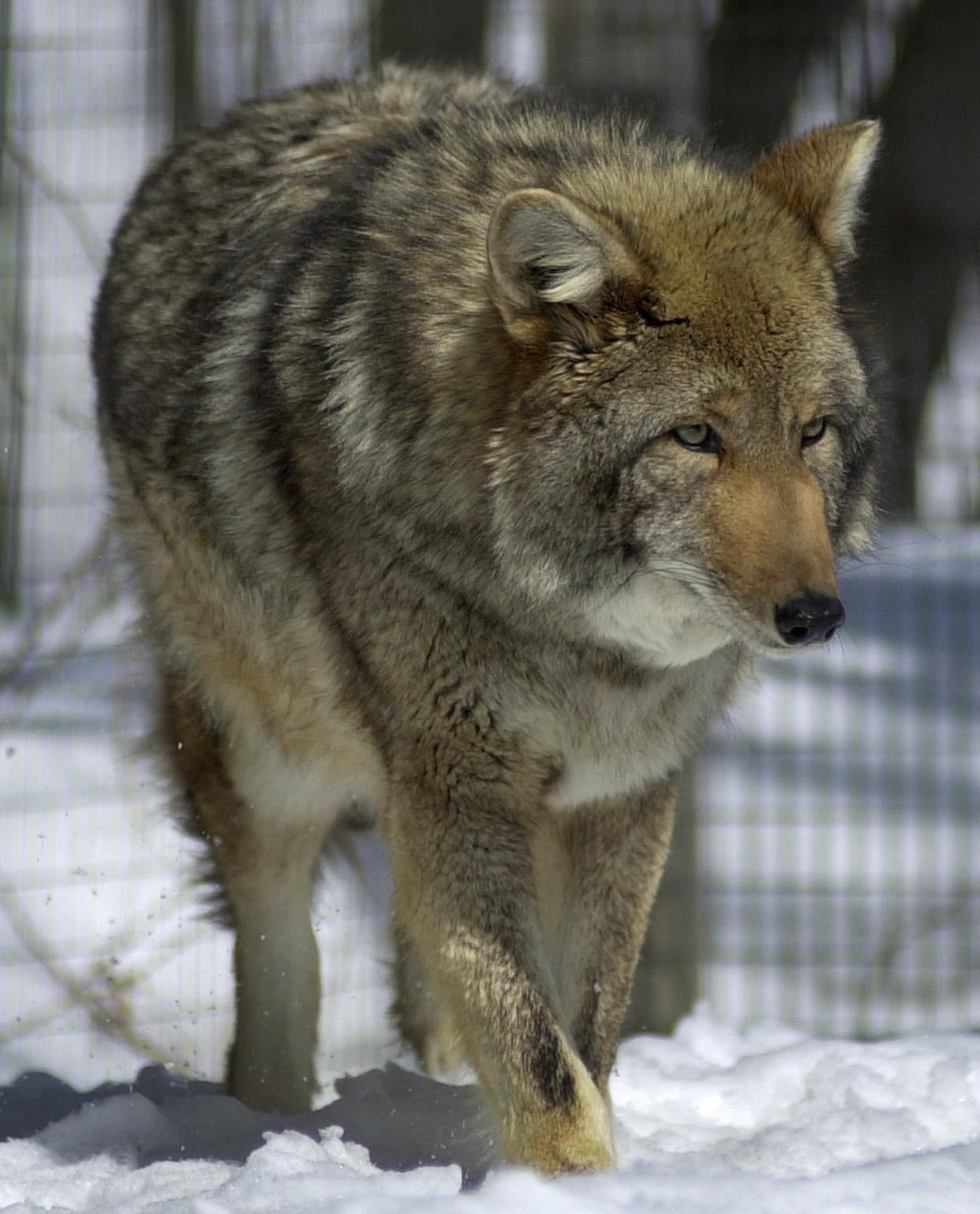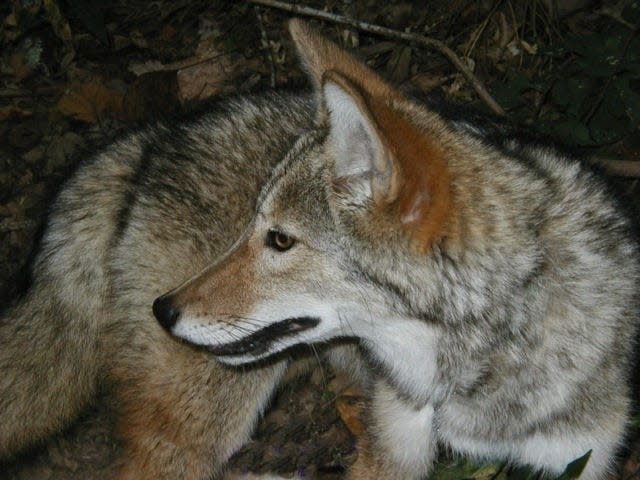Answer Man: Are number of coyotes increasing in WNC? Do they threaten humans?

Today's question is about coyotes and their prevalence in Western North Carolina. Got a question for Answer Man or Answer Woman? Email Executive Editor Karen Chávez at KChavez@citizentimes.com and your question could appear in an upcoming column.
Question: I recently saw a piece on television regarding how the number of coyotes is increasing across the Nation and how they are becoming more aggressive in their search for food. What is the coyote population like in our mountain area and also in the greater Asheville urban and suburban area? Have there been any reported problems by farmers or community dwellers regarding the loss of livestock or family pets? Have coyotes showing any aggressive behaviors towards people? I know that when I'm out hiking black bears have no interest in getting near human beings unless they feel their cubs are endangered. Should there be any precautions taken regarding the coyote population when you're out and about in the mountains?
Answer: According to the North Carolina Wildlife Resources Commission , coyotes are believed to have first arrived in Western North Carolina by the mid-1980s and had established themselves throughout the entire state by 2005.
“We don't necessarily have an estimate on the number of coyotes because estimating populations of wild animals is really, really difficult to do with any kind of accuracy,” said Falyn Owens, extension wildlife biologist for the N.C. Wildlife Resources Commission. “What we do have is voluntary hunter-submitted information from hunters and trappers that catch coyotes for recreational purposes.”
More: Answer Man: Have the woodchucks gone missing?
More: Answer Man: Do hibernating animals need to drink? Eat? Defecate?
According to the Wildlife Resources Commission’s Coyote Hunting and Harvest Total Annual Estimates report, between 2017 and 2021, several hundred coyote harvests are reported annually in most counties in the North Carolina mountains. Again, these are broad estimates.
“Through those methods, we get an idea of how many coyotes are removed from the population, which of course is nowhere near a way to estimate the total population,” Owens said. “But with that information, we can very clearly say that the coyote population is abundant and stable. So those numbers don’t really change too much from year to year.”
As for the coyote population specifically in the Asheville area, Owens reiterated that making accurate population estimates is difficult to do. Because of their ability to adapt to a variety of environments, however, Owens said that coyotes will likely be residing in urban and suburban areas.
“Because coyotes are so adaptable and capable of surviving in almost any kind of habitat or situation, it doesn't matter if you're talking about a rural area or a really wild forested area or a beach or a neighborhood or a downtown,” Owens said. “Coyotes are pretty much going to be established there and doing very well for themselves.”

More: Answer Woman: After McCormick pledge, will Asheville music venue get $100M for renovation?
More: Answer Woman: Should you keep feeding bluebirds in the spring? Do they need my help?
Regarding the loss of pets or livestock to coyotes, Owens said that while these kinds of problems are not unheard of, they are fairly preventable.
“Usually it has to do with small livestock that are not being protected appropriately or outdoor cats,” Owens said. “That's one that we do see. It's one of the more common issues that people report, outdoor cats going missing and, for better or for worse, the best way to prevent that is to keep cats inside.”
As for direct contact with humans, a pamphlet by the NC Wildlife Resources Commission titled “Coexist with Coyotes” states that “Normal coyote behavior is to be curious, but wary, when close to humans.”
The Wildlife Resources Commission says that “Simply seeing a coyote is not cause for alarm,” but does provide a multitude of tips on how to prevent issues with coyotes in residential areas, including tightly securing outdoor garbage, feeding pets indoors or ensuring that their food is brought back inside, keeping areas around bird feeders clean and ensuring that fallen fruits do not remain on the ground.
If residents encounter a coyote on their property, the commission encourages them to not be frightened.
“Maintain its wariness by throwing a small object, such as a tennis ball, at it, making a loud noise or spraying it with a hose,” the pamphlet says. “Let it know it is unwelcome near your home.”
More: Answer Man: Why so many firetrucks in Asheville?
More: Answer Man: Is kudzu a problem inside national forests, parks near Asheville?
In the event that a coyote is encountered while outdoors, Owens said that remaining calm and acting intimidating is the safest course of action.
“A healthy coyote is going to run in the opposite direction when it sees a human being that is showing no fear and being scary toward it,” Owens said. “For people who have dogs, they're walking their dogs, always keeping them on a leash is going to make sure that those dogs are much safer because a coyote is not going to want to approach a human being in order to get close to the dog.”
Owens encouraged residents to not view coyotes entirely as a nuisance.
“They do serve a really important role in our ecosystems here,” Owens said. “They provide excellent rodent control. So they are natural predators of moles, voles, mice, rats, rabbits, all sorts of small rodents and small animals that need predators to keep their populations in check. So coyotes actually do perform that service, and that's a reason to appreciate them.”
This article originally appeared on Asheville Citizen Times: Answer Man: Are coyotes increasing in WNC? Do they threaten humans?

